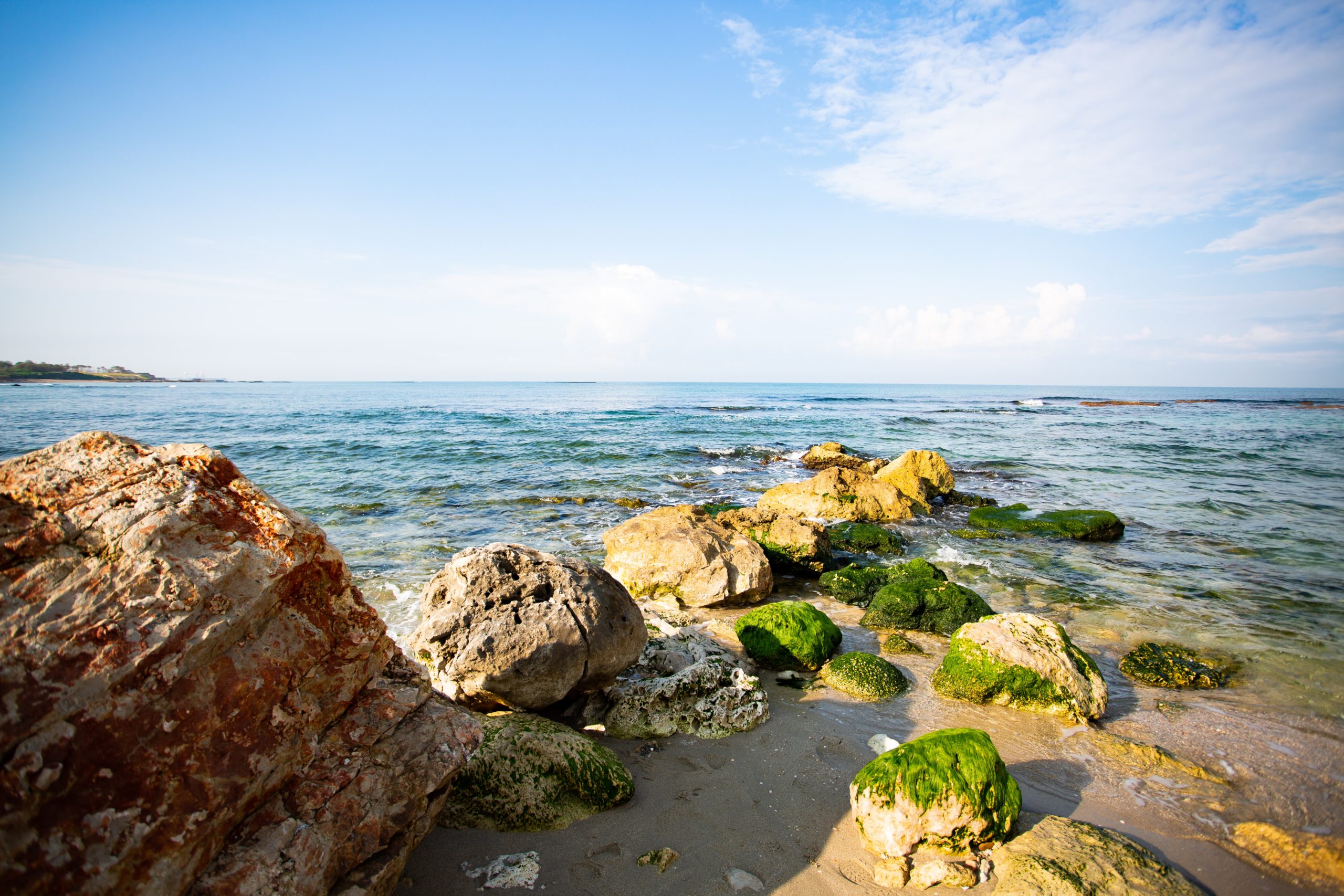
Waves washed over broken stones in the sea. A few yards away, laughing tourists dipped their toes into the bright blue waters of the Mediterranean. The striking beauty of Caesarea Maritima, this ancient city on the sea, so captivated me I almost missed the plaque at the edge of the rocks.
Determined to experience the fullness of the place, I soaked my shoes in puddles of seawater trying to reach the little plaque on the other side of the headland. My time in Israel held many surprises, but what I discovered that day struck so deeply it has been a point of meditation even years later.
The tiny sign told me I was standing in the former dining room of Herod the Great. I looked about, searching for any trace of the grandeur of the “Promontory Palace” that once stood there. Only when sunlight peeked through the clouds could one see the rectangular pool etched into the sandstone—the only evidence the place was touched by human hands.
The placement of the palace was no accident. It taunted nature to take it and, in time, nature obliged. What ancient historian Josephus called Herod’s “most magnificent palace,” was now only a broken remnant occupied by fish.[1] It laid in the ocean as a clear picture of the impermanence of mankind’s pursuits.
One does not have to travel to an ancient palace in ruins to recognize the fleeting nature of humanity’s kingdoms. History shows time and time again that even the largest empires fall. The Scriptures speak to this impermanence not only through the provision of historical narrative but also explicitly in books like Ecclesiastes (which directly acknowledges the toil of man).
This year, some people face the reality of impermanence for the first time. In many ways, 2020 lays waste to parts of the world we all once considered permanent. Though we may not have physical palaces crumbling into the sea, societal structures are shifting and our internal walls of “stability” built on self-reliance are disintegrating.
Even those who throughout their lives have recited “The grass withers, the flower fades, but the word of our God will stand forever,” experience the truth of Isaiah 40:8. As I survey my own life, I find waves washing over broken dreams and decay pervading palaces I built for myself upon unstable foundations.
Yet it is in this place, surrounded by ruins of lesser kingdoms, that we must call to mind the permanence of the Kingdom of God. Revelation 22:5 promises the people of God that at the end of all things, “night will be no more. They will need no light of lamp or sun, for the Lord God will be their light, and they will reign forever and ever.”
Can you imagine such a kingdom? A place perpetually filled with the light? Perpetually filled with love? Perpetually filled with goodness? Such is the nature of dwelling in the presence of our God forever. We can look to Revelation 21:3-5 for this truth:
“And I heard a loud voice from the throne saying, “Behold, the dwelling place of God is with man. He will dwell with them, and they will be his people, and God himself will be with them as their God. He will wipe away every tear from their eyes, and death shall be no more, neither shall there be mourning, nor crying, nor pain anymore, for the former things have passed away.” And he who was seated on the throne said, “Behold, I am making all things new.”
A clear promise cuts through impermanence of our fallen kingdoms: all will give way to glory.
[1] Josephus, The Jewish War 1. 408–415.

